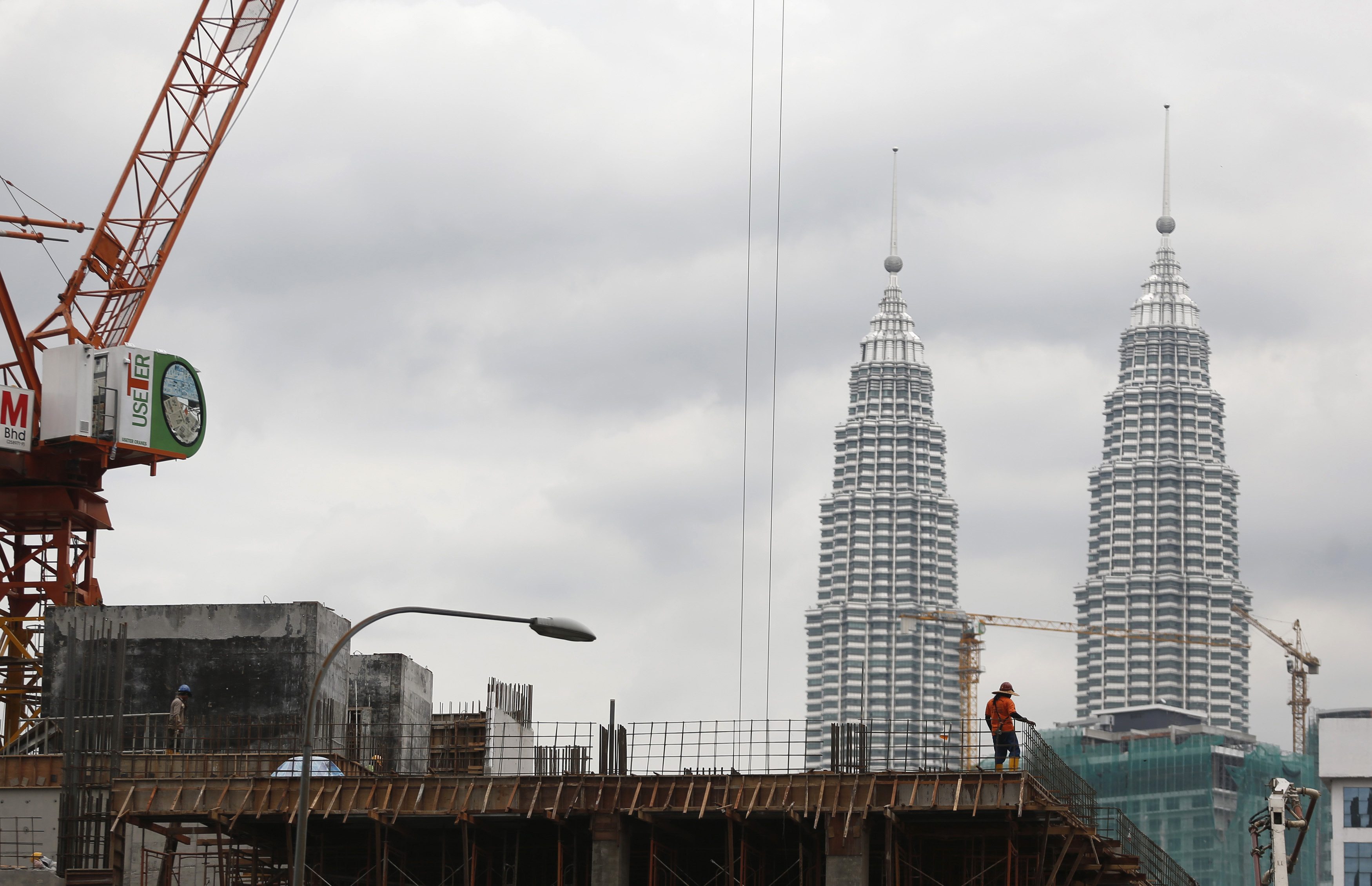KUALA LUMPUR, Dec 27 — Malaysia's construction industry is expected to be busy next year, driven by both private and government projects, particularly the Economic Transformation Programme (ETP).
Under the National Key Economic Areas (NKEA) listed in the ETP, the country saw the launch of 195 projects over the past three years, bringing in a total committed investment of RM220 billion.
The projects are expected to contribute RM144 billion to gross national income and create 435,000 new jobs.
Construction Industry Development Board Malaysia (CIDB Malaysia) Chief Executive, Datuk Seri Judin Abdul Karim, said the construction industry was expected to secure a total of RM115 billion worth projects in 2014.
Last year, the total projects secured were worth RM120 billion, which surpassed the expected RM95 billion, Judin said.
“The construction industry did very well this year to grow by 18 per cent compared with last year despite the gloomy global economy,” he said.
Judin said the current trend was forecast to continue next year with the anticipation of continuous economic stability.
“We expect the bulk of next year's projects to come from non-residential construction projects.
“The industry would also see more private sector projects compared to government-owned,” he told Bernama.
For the first nine months of this year, the construction industry recorded a total of 4,253 projects worth RM66.8 billion, of which 76 per cent were private sector projects, he said.
He said as at Sept 30, 2013, the non-residential category, commercial building, industrial and office space topped the list with 1,563 projects worth RM28.8 billion.
Meanwhile, the residential projects, the second biggest category after non-residential, accounted for RM18.2 billion of total projects awarded during the period, indicating continuous demand for such projects, he said.
Judin said the need for Industrial Building System (IBS) in the country was growing in sync with growing demand in the construction industry, as reflected in the registration of over 200 IBS suppliers with CIDB to date.
CIDB has targeted that by end-2015, the take-up rate of such system in the private sector would increase to 50 per cent from the current 30 per cent.
“The use of IBS has increased in private sector projects as the cost of labour has increased,” Judin said.
He said apart from being less labour-intensive, IBS also could ensure quality, prompt completion and reasonable price for construction.
Judin said the system has contributed significantly towards the building of projects related to affordable housing in the country.
Syarikat Perumahan Negara Bhd (SPNB) and The 1Malaysia People's Housing Programme Corp (PR1MA Corp), two government agencies given the mandate to handle construction projects for the low-and moderate-income people, are currently using the system.
SPNB will be building 15,122 units of affordable houses, 3,000 units of Rumah Idaman Rakyat and 8,000 units of Rumah Mesra Rakyat.
PR1MA Corp will roll out another 80,000 housing units at 20 per cent lower than market prices with an allocation of RM1 billion next year under the 2014 Budget.
On local talents, Judin said, with more affordable houses and mega projects like the Klang Valley mass rail transit (MRT) project, Greater KL and the River of Life project, they would definitely make a big impact on local contractors.
“If local talents are trained in the process of building the infrastructure instead of depending on foreign labour, their experiences will help at the international level,” he said.
Judin said more MRT projects were expected to be rolled out in the next few years and the local contractors would have huge opportunities to be part in that.
“Malaysian contractors have the experience and expertise to cater to the country's construction needs,” he said.
Earlier this year, CIDB signed an agreement with the MRT Corp to provide safety induction training for some 12,000 MRT project personnel and ensure the project's adherence to safety and health requirements.
The board will also provide training in trades relevant to the MRT project requirements and accredit construction personnel working on the project, he said. — Bernama






















